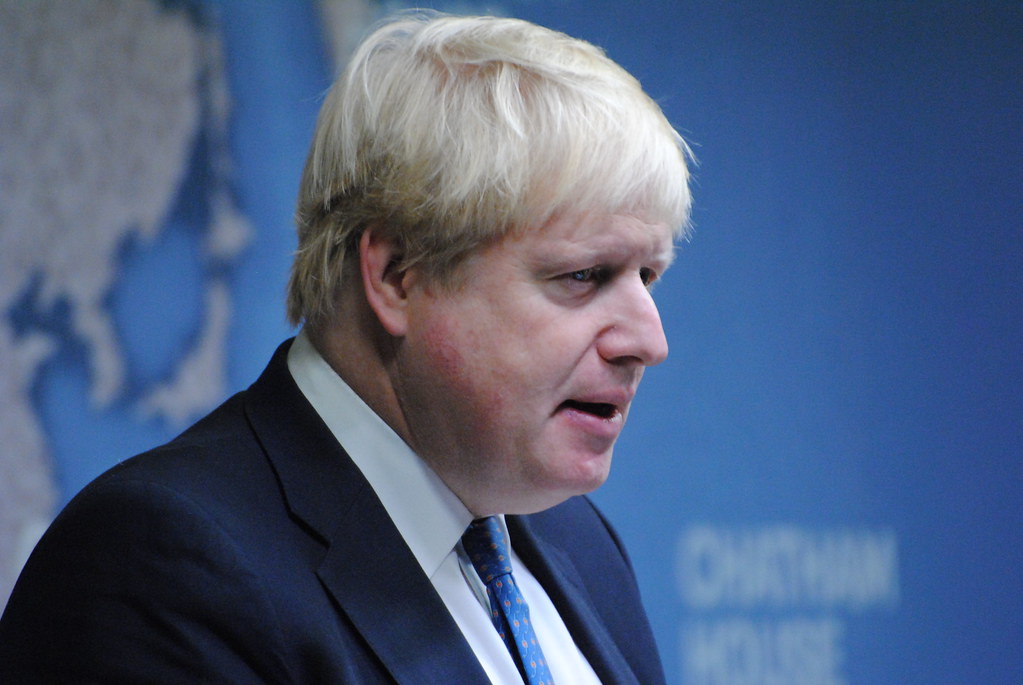COVID-19: London lockdown ‘likely’ amid second wave fears
UK Prime Minister Boris Johnson has expressed fears that the UK may now be seeing a “second wave coming in” and is reportedly considering tougher England-wide measures this weekend to slow the spread of the deadly virus. During a visit to Oxford on Friday, Johnson said that a second lockdown was the “last thing anybody wants” but admitted that the government was considering whether it needed to go further than the restrictions introduced this week that limited social interactions to six people.

- Country:
- United Kingdom
Another lockdown in London looks “increasingly likely” amid fears that the UK is heading towards a second wave of the coronavirus pandemic. After a meeting with local council leaders and government officials, London Mayor Sadiq Khan said on Friday that there was concern that the infection was spreading across the UK capital at an accelerating speed, which would make tougher measures necessary.
"It is increasingly likely that, in London, additional measures will soon be required to slow the spread of the virus,” said Khan. "We will be considering some of the measures which have already been imposed in other parts of the UK. I am of the firm view that we should not wait, as happened six months ago, for this virus to again spiral out of control before taking action," he said.
He also confirmed that the capital's famous New Year's eve fireworks on the banks of the river Thames, which attracts crowds of over 100,000 every year will not be going ahead this year. “I can tell you there will not be fireworks at New Year's eve like there has been in previous years. We simply cannot have the number of people who congregate on New Year's eve congregating,” the Mayor said.
The number of cases per 100,000 people over seven days is reported to have increased in London from 18.8 to about 25, matching a countrywide spike in infections. UK Prime Minister Boris Johnson has expressed fears that the UK may now be seeing a “second wave coming in” and is reportedly considering tougher England-wide measures this weekend to slow the spread of the deadly virus.
During a visit to Oxford on Friday, Johnson said that a second lockdown was the “last thing anybody wants” but admitted that the government was considering whether it needed to go further than the restrictions introduced this week that limited social interactions to six people. “We want to try and keep all parts of the economy open as far as we possibly can. I don't think anybody wants to go into a second lockdown but clearly when you look at what is happening, you have got to wonder whether we need to go further than the ‘rule of six’ that we have brought in on Monday,” he said.
The government is believed to be looking at a ban on households mixing, and reducing opening hours for pubs and restaurants even as around 13.5 million people, roughly one in five of the UK population, already face tougher localised restrictions in northern parts of England. On Friday, a further 4,322 confirmed cases of coronavirus were recorded – the first time the daily total of positive tests has exceeded 4,000 since early May.
The Opposition Labour party has called for the government to hold an emergency COBRA, or Cabinet Office Briefing Room A, meeting to look at the science and improve its communication and testing strategy. Scottish First Minister Nicola Sturgeon and Welsh First Minister Mark Drakeford, who are in charge of rules for the devolved regions, are also calling for a COBRA meeting. The government's Scientific Advisory Group for Emergencies (SAGE) said the R number – or the number of people an infected person will pass the virus on to – had risen to between 1.1 and 1.4, well beyond the outer threshold of 1. Although deaths remain at a very low level, SAGE said the rise in the R number "shows that we are moving to wider spread growth in transmission at a faster rate".
The Office for National Statistics (ONS) also noted a “marked increase” in infections last week, with 6,000 people a day catching the virus, double the number seven days before. The sharp rise in UK cases over the last two weeks comes amid ongoing issues with the government's test and trace programme, leading to people struggling to access tests.
(This story has not been edited by Devdiscourse staff and is auto-generated from a syndicated feed.)
ALSO READ
"Mujhe ek Hindustan UK mein banana hai": Vashu Bhagnani says 'Mission Raniganj', 'Shaitaan' shot at his England studio
"Mujhe ek Hindustan UK mein banana hai": Vashu Bhagnani says 'Mission Raniganj', 'Shaitaan' shot at his England studio
Cricket-Record stand helps England women to four-wicket win over New Zealand
Cricket-All-rounder Stokes opts out of England squad for Twenty20 World Cup
England's bowling all-rounder Sarah Glenn ruled out of New Zealand tour










